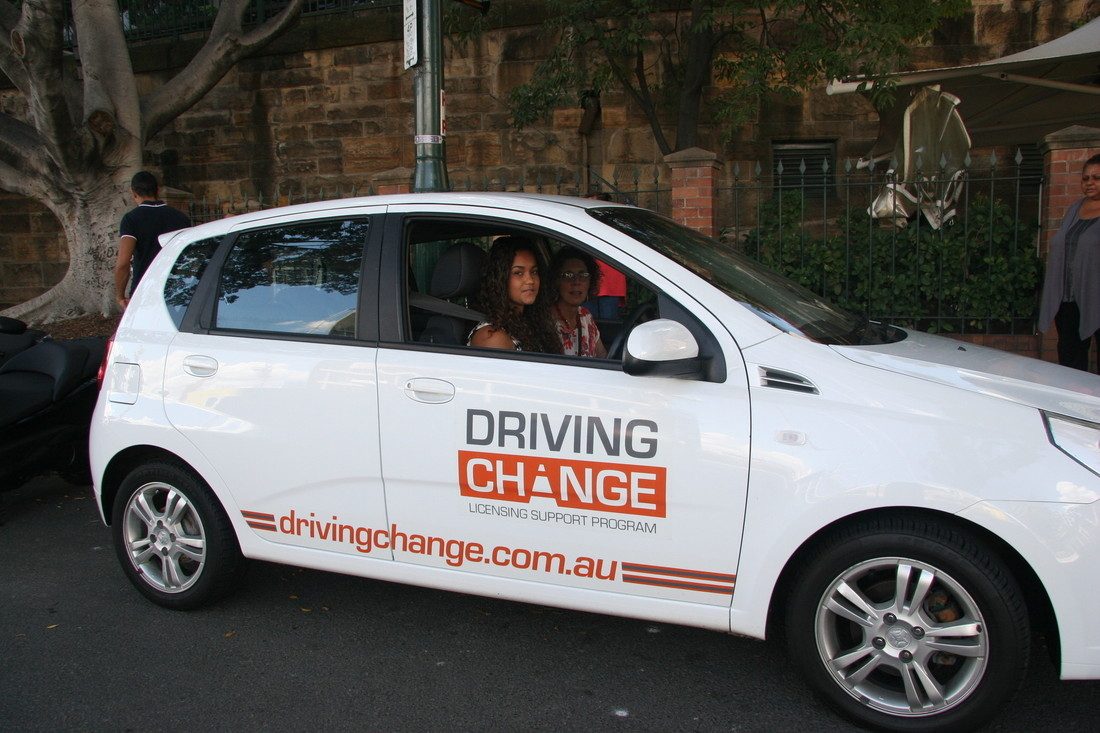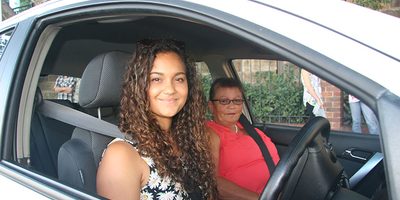
Driving Change launched in Taree
Young learner drivers taking part in an innovative new licensing programme in Taree need driving mentors in order to start turning the keys to their future.
The Driving Change programme is run by the George Institute for Global Health, and provides extra support to help young Aboriginal and Torres Strait Islander people to obtain a driver licence, to allow them better access to employment, education and health services.
Taree programme manager Jennifer Rumbel said: “We have a car, we have lots of really keen, excited young people enrolling, and now we need mentors to help out as driver supervisors to help these learners gain their licence.
“Many of the young people we are working with need to get their driver licence to access jobs but don’t have anyone to sit in the car with them as a supervising driver to gain those hours of practice they need to gain their licence.”
The volunteer mentors will be required to go through an application process and be available for a minimum of two hours per fortnight – at least one, two-hour driving session per fortnight. All checks and training costs will be covered by the programme.
Aboriginal Legal Services field officer Lou Stanton, who channels young clients through the Driving Change programme, said the Driving Change programme was part of a holistic approach from the community in the promotion and education of young road users to be safe and responsible drivers.
Driver licencing initiatives for disadvantaged young people in Taree are supported by Roads safety officer Chris Dimarco of Greater Taree City Council, Eda Devoti of Hunter New England Health, Tony Magri and Troy Cochrane of Biripi AMS, Mandy Davis and Andrew Saunders of the Aboriginal Learning Circle North Coast TAFE, NSW Police Aboriginal Community Liaison Officer Sarina Hickson-Flissinger and NSW Police Manning Great Lakes Command.
Participants have already been through driving lessons, funded by the NSW Police Manning/great Lakes Command providing a $5000 grant under The Aboriginal Strategic Direction Plan 2014/2015.
“Helping young drivers obtain their licence to a provisional level increases their confidence, job opportunities and increases their ability to carry out family duties. Doing it in such a supported manner allows these young drivers to understand the responsibilities that go with a driver’s licence, and make them much safer drivers, to the benefit of the communities in which they drive,” said Mr Stanton.
Programme leader Professor Rebecca Ivers, of The George Institute and The University of Sydney, said: “Driving Change is a community-led program that helps break through the barriers that some young Aboriginal people have to getting a licence, such as access to identification documents, limited availability of supervising drivers or cars, and prohibitive lesson costs.”
Australian data shows that Aboriginal and Torres Strait Islander people are almost 1.5 times more likely to be seriously injured, and almost three times as likely to die, from road traffic injury compared with other Australians.
Mark Fladrich, Managing Director of AstraZeneca Australia and New Zealand said that Driving Change represents a unique way to tackle a community problem.
“Driving Change is about building capacity in local communities to create the conditions that result in safe and licensed young drivers. AstraZeneca is proud to partner with the NSW Government and The George Institute as major supporters of this program.”
The programme is part of a pilot program of licensing support services now running in 9 sites across New South Wales, run as research project by The George Institute for Global Health with support from AstraZeneca, Transport for NSW and NSW Health.



